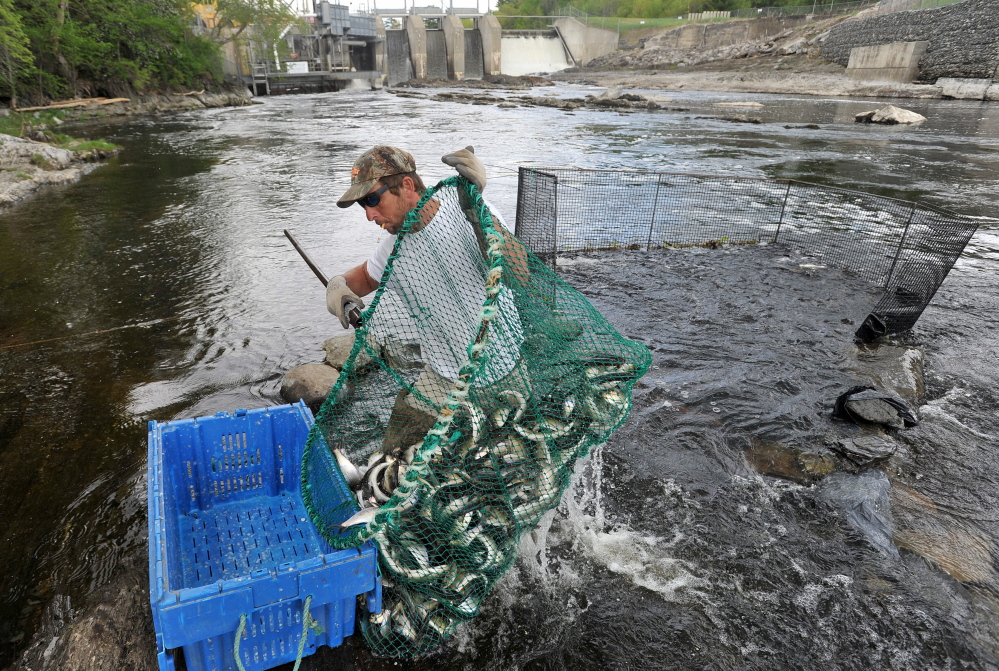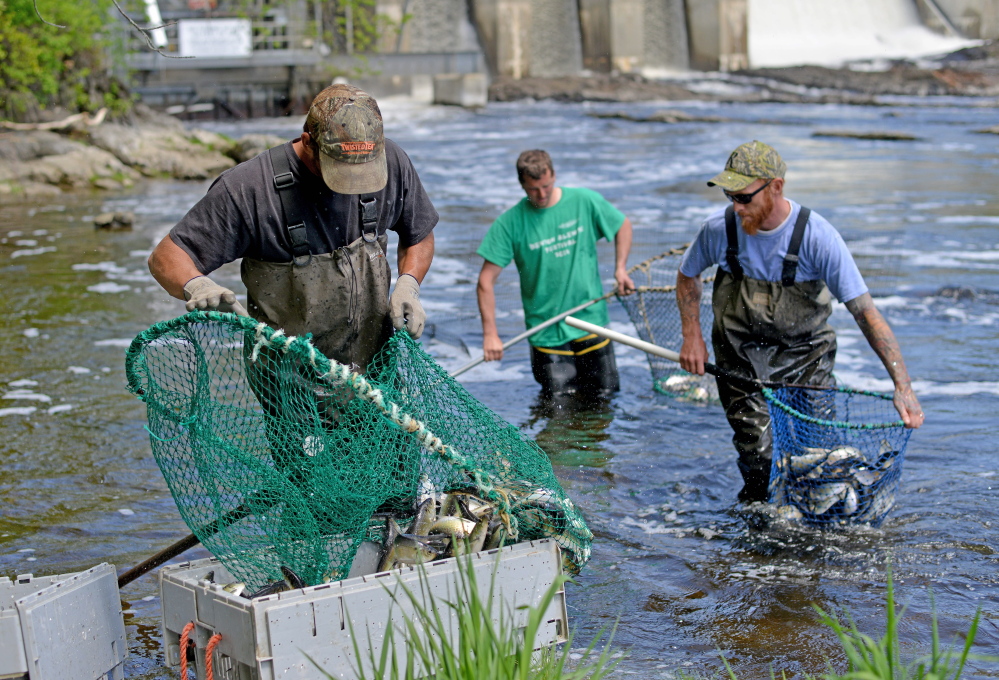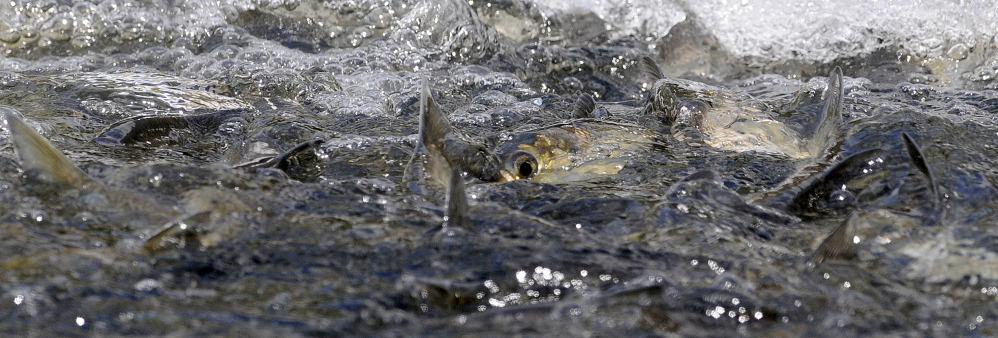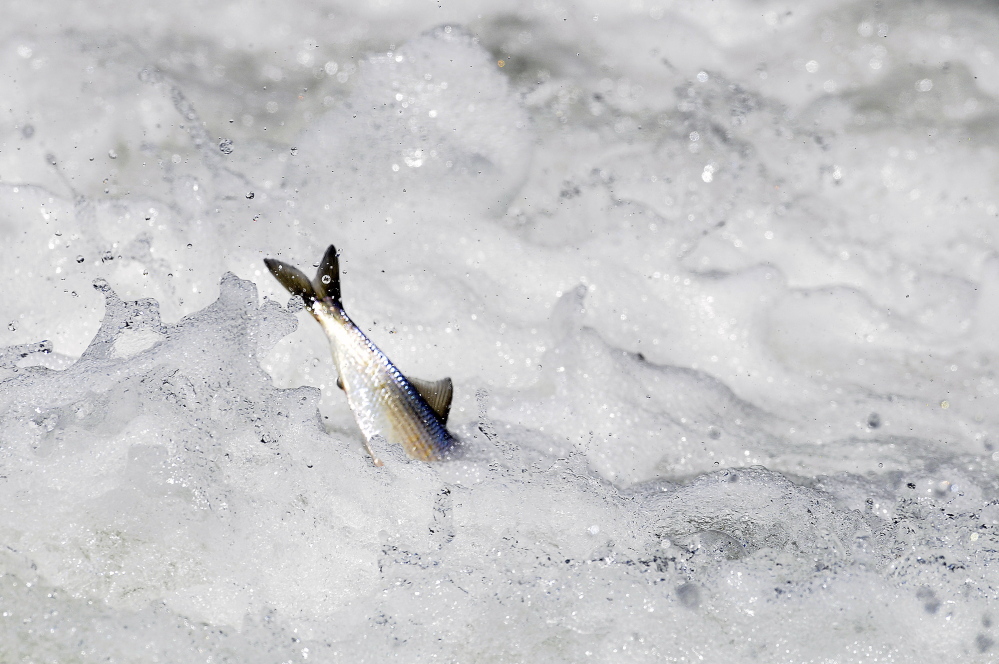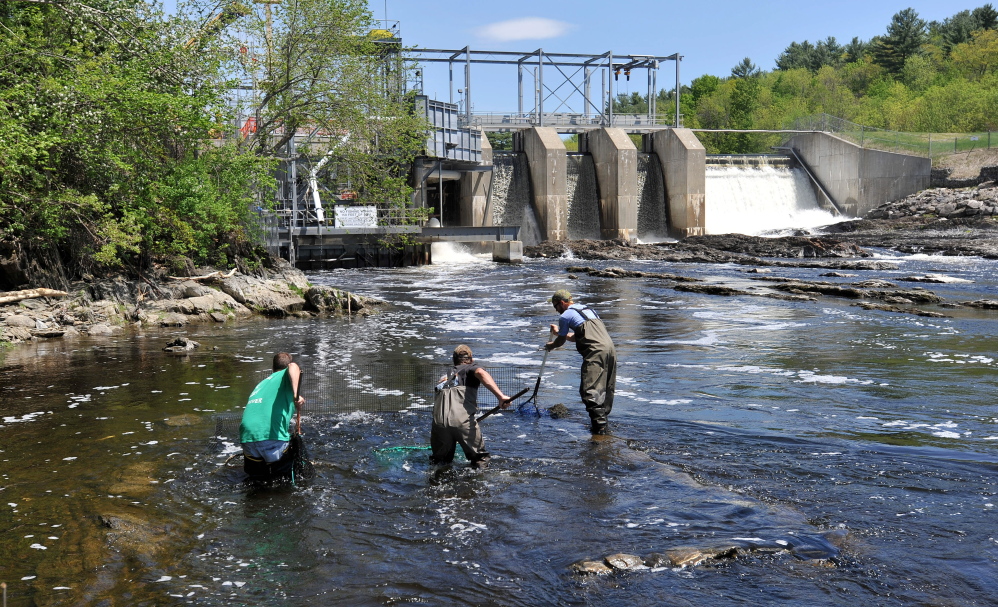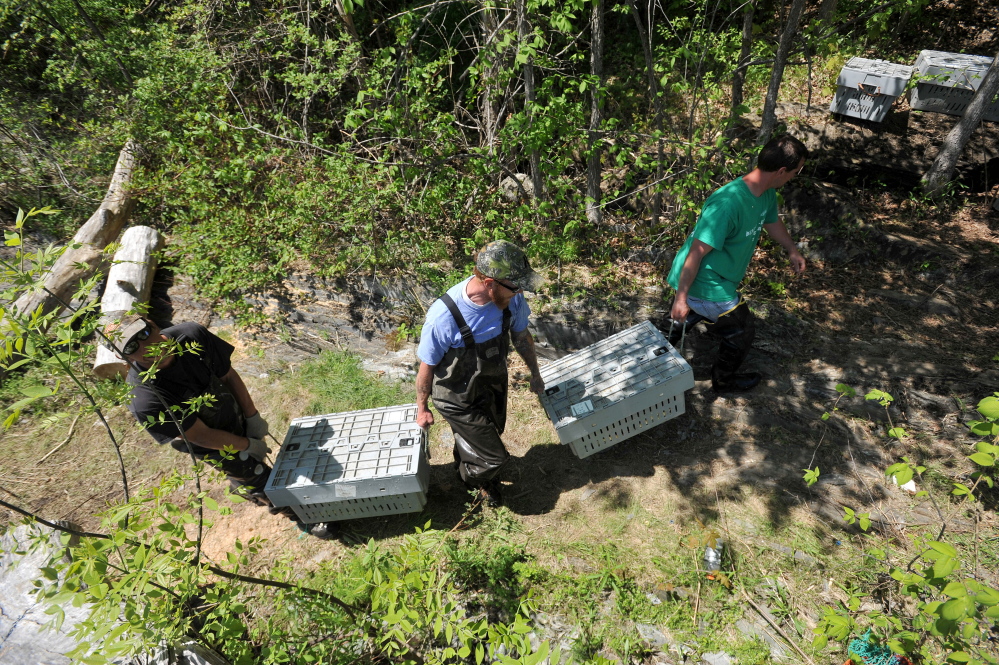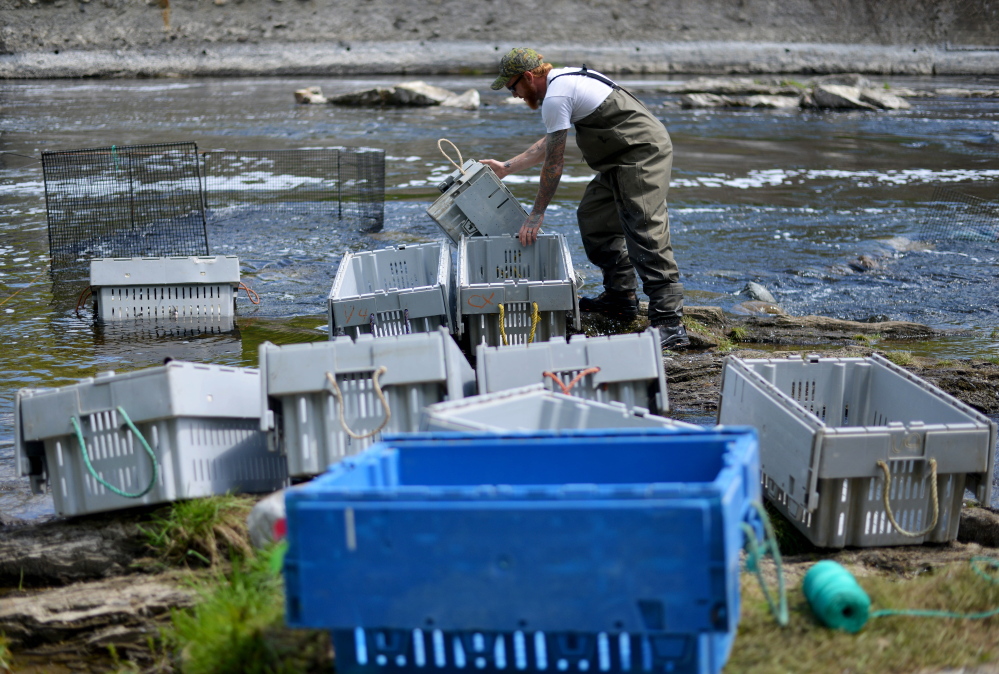Staff Writer
BENTON — Dressed in green chest waders and armed with nets, the three fishermen approached a net trap set in the fast-moving water of the Sebasticook River just below the Benton Falls Dam.
They plunged the nets into the water, lifting them up filled with hundreds of thrashing, silver fish, which were then unloaded into plastic crates in the water.
It’s the annual catch of alewives, small river herring making their run from the Atlantic Ocean up the Sebasticook and other rivers to inland freshwater lakes to spawn. The run of millions of fish is a bounty for marine predators of every stripe, and in recent years has also become a robust commercial fishery. Crates of alewives sell for about $70 each.
Ernie Wallace and Tommy Keister, who have been part of a crew that have harvested alewives in Benton for years, said they can normally fill at least eight of the plastic fish crates every 10 minutes during the month-long season. Last year, they caught enough fish to fill 1,000 crates, with about 250,000 pounds of fish.
But this season, they expect to catch less than a third of that bounty.
“Usually, we catch more than we can sell,” Keister said.
“Not this year,” Wallace added.
The problem isn’t lack of fish. Less than 50 yards away, the sun glints off the scales of tens of thousands of alewives just underneath the surface of the water in a channel near the east bank of the river. That’s where Wallace and Keister would like to be. The crew ordinarily sets up a skiff and a ramp on the ledges at the east bank and pick out as many of the fish as they can physically handle.
But because of damage to the Benton Falls hydroelectric dam, Wallace and Keister are instead set back in a small space on the west bank, too far away from the main run of fish to bring in a good catch.
“It’s been frustrating to watch them stream by,” said Jim Wotten, of Friendship, who leads the crew of fishermen at the Benton Falls Dam. “We’re just scraping up what we can from around the edges.”
In March, dam operators discovered a crack in the main power-generating turbine, in the power station. The shaft had to be removed and taken to another site for repairs, said Andrew Locke, president of Essex Hydro, which operates the dam with Benton Falls Associates. Essex Hydro, based in Boston, expects to have the turbine fixed later this summer.
Ordinarily, river water passes through the horizontal turbine to generate electricity and is discharged out the other side. But without the turbine, water runs out of the tube in a violent geyser, and the strong current makes the area too dangerous for people to be in.
“Just imagine me blasting a fire hose at you while you are trying to harvest fish,” Locke said.
The main bypass gates at the top of the dam have also been opened to deal with the overflow, he added.
Just as Wotton and his crew were getting ready for the season, they got some bad news from the dam — because of safety concerns, they would not be allowed to set up in their usual harvesting places.
“This is not a decision we made lightly,” Locke said. “We understand the economic impact this is going to have on the harvesters and the community.”
“But there is no economic upshot that would be worth losing someone’s life,” Locke added.
The dam is losing out, too. The cracked turbine shaft was discovered right before its most productive time, when the river is swollen with snow melt and running fast. His company is losing “tremendous” revenue because of the repairs, Locke said.
The annual alewife run begins in early May, and harvesters can start bringing in their catch as soon as 250,000 fish have passed over the dam. Until the end of the season in early June, they can fish the river in Benton seven days a week.
The town of Benton, like other Maine communities with alewife runs, have a legal right to harvest the fish and contract professional fishermen to manage the annual catch.
Ron Weeks, of Jefferson, organizes the harvest in Benton and Vassalboro. Different crews are subcontracted to fish at the sites Benton Falls and Webber Pond. Everyone gets a cut, including the town of Benton, which is entitled to a third of the gross revenues.
Since 2008, the town of Benton’s average annual take from the harvest has been about $18,000, said Rick Lawrence, the town’s treasurer and alewife warden.
The loss this year won’t have a serious effect on the town’s budget, but it’s a revenue source that’s helped fund the annual alewife festival and dinner, Lawrence added.
“We will just have to hope it gets back to normal next year,” he said.
This year’s harvest has been disappointing for the fishermen, but not disastrous.
“It’s going to hurt, but it won’t bankrupt me,” Wotten said.
With the complications this year, it doesn’t make sense to keep a full crew on the river and his crew have been taking shifts at the dam, Wotton said.
He doesn’t hold this year’s complication against the dam and understands there are serious safety concerns with the damaged turbine. Without the turbine, the water levels can rise unexpectedly and the current is too strong to stand and fish in.
When he was fishing on Wednesday, the water level rose at least a foot in an hour, Wotten said. If his crew had been out standing on the east bank ledges, they could have lost everything, he said.
Although he could apply to the Maine Department of Marine Resources to extend his season and try to make up for some of his losses, Wotton said he’ll probably call it quits when the regular season ends in early June. Still, one bad year isn’t going to put him off. Wotton plans to be back in Benton to harvest next year.
“It’s barely worth the time we’re spending up there now,” he said.
Peter McGuire — 861-9239
pmcguire@centralmaine.com
Twitter: @PeteL_McGuire
Send questions/comments to the editors.


